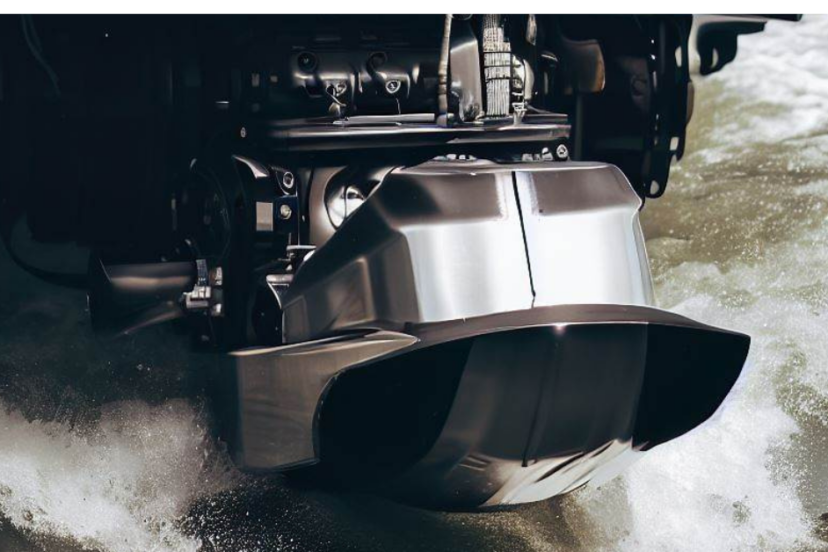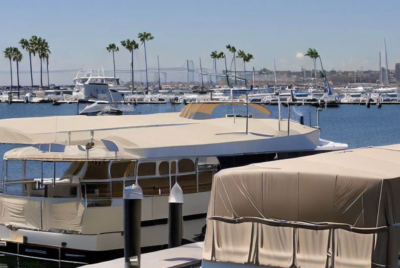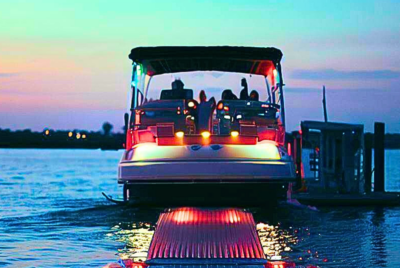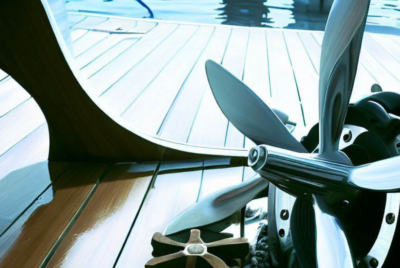Pontoon Boat Motor: Choosing the Right Power for Optimal Performance
Choosing the Right Power
As a pontoon boat enthusiast and advisor, I understand the importance of selecting the right motor to enhance your boating experience. The motor plays a crucial role in powering your pontoon boat, providing the necessary propulsion and control on the water. In this article, I will guide you through the process of choosing the ideal pontoon boat motor, considering various factors and providing helpful suggestions for your selection.
Types of Pontoon Boat Motors
Outboard Motors
When it comes to pontoon boat motors, one popular option is the outboard motor. These motors are mounted on the transom of the boat, providing power and maneuverability. Outboard motors offer several benefits for pontoon boats, including ease of installation, maintenance, and repair. They are available in a wide range of horsepower options, allowing you to choose the one that best suits your needs.
Outboard motors offer excellent versatility and performance for pontoon boats. They provide the necessary power to navigate through different water conditions, including lakes, rivers, and coastal areas. Additionally, outboard motors are designed to be tilt and trim adjustable, allowing you to optimize the motor’s performance based on your boat’s load and water conditions.
When choosing an outboard motor for your pontoon boat, consider factors such as horsepower requirements, weight capacity, and the type of boating activities you plan to undertake. It’s essential to select a motor with adequate horsepower to meet your performance needs, while also considering fuel efficiency and budgetary constraints.
Electric Motors
Another option to consider for your pontoon boat motor is an electric motor. Electric motors have gained popularity in recent years due to their environmental friendliness and quiet operation. They are powered by batteries, eliminating the need for gasoline or diesel fuel. Electric motors offer several advantages for pontoon boats, including zero emissions, reduced noise levels, and low maintenance requirements.
When selecting an electric motor for your pontoon boat, it’s crucial to consider the battery capacity and range. The battery capacity determines how long the motor can operate before requiring a recharge. Additionally, consider the weight of the batteries and their impact on your boat’s performance and handling. Electric motors are an excellent choice for those who prioritize eco-friendliness and enjoy peaceful boating experiences.
Power Requirements and Motor Size
Determining the right horsepower for your pontoon boat is crucial for optimal performance. The power requirements depend on factors such as the boat’s weight, desired speed, and intended usage. It’s essential to select a motor with sufficient horsepower to propel your boat effectively, ensuring smooth operation and maneuverability.
Matching the motor size to your pontoon boat’s weight is vital to avoid underpowering or overpowering the vessel. Underpowering can result in sluggish performance and difficulty handling rough waters, while overpowering can lead to excessive speed and potential safety risks. Consult your boat manufacturer’s recommendations or seek advice from a knowledgeable dealer or mechanic to determine the appropriate motor size for your pontoon boat.
Fuel Options for Pontoon Boat Motors
When it comes to fuel options for pontoon boat motors, two primary choices are available: gasoline motors and electric motors.
Gasoline Motors
Gasoline motors have been the traditional choice for pontoon boats, offering reliable power and performance. They are available in various horsepower options, allowing you to select the motor that aligns with your boating needs. Gasoline motors provide a wide range of power and can accommodate larger boats or those with higher performance requirements.
There are several factors to consider when choosing a gasoline motor for your pontoon boat. First, weigh the pros and cons of gasoline motors, including their fuel efficiency, maintenance requirements, and overall cost of operation. Additionally, consider the availability of gasoline in your boating area and the potential environmental impact of fossil fuel usage.
Electric Motors
Electric motors, as mentioned earlier, offer a clean and quiet alternative for pontoon boats. They are powered by batteries, which eliminate the need for fuel and reduce emissions. Electric motors are particularly suitable for those who prioritize environmental sustainability and enjoy tranquil boating experiences.
However, it’s important to understand the limitations of electric motors. They typically offer lower horsepower options compared to gasoline motors, which can affect the speed and performance of your pontoon boat. Additionally, the range and battery capacity of electric motors may require careful planning to ensure sufficient power for your boating adventures.
Consider your specific requirements, including the desired range, speed, and environmental impact, when deciding between gasoline and electric motors for your pontoon boat.
Accessories for Pontoon Boat Motors
To further enhance the performance and functionality of your pontoon boat motor, consider incorporating additional accessories. Here are two popular accessories worth considering:
Trolling Motors
Trolling motors provide enhanced maneuverability and control, especially when fishing or navigating in calm waters. These motors are typically mounted at the bow or stern of the boat and are controlled by a foot pedal or remote. Trolling motors offer quiet operation and precise speed adjustments, allowing you to position your boat precisely and maintain stability in various fishing scenarios.
When choosing a trolling motor, consider factors such as thrust power, shaft length, and battery capacity. Higher thrust power is preferable for larger boats or when dealing with currents or wind. The shaft length should be appropriate for your pontoon boat’s height and transom design. Additionally, ensure that the trolling motor’s battery capacity matches your desired usage time on the water.
Hydrofoils or Trim Tabs
Hydrofoils or trim tabs are accessories designed to improve the performance and fuel efficiency of your pontoon boat. Hydrofoils are mounted on the motor’s cavitation plate, while trim tabs are attached to the transom. Both accessories work by adjusting the boat’s trim and lift, reducing drag and improving stability.
By installing hydrofoils or trim tabs, you can enhance your pontoon boat’s planing ability, reduce bow rise, and optimize fuel efficiency. These accessories are particularly useful when dealing with varying loads, rough water conditions, or when seeking better control and handling.
Consider the benefits of hydrofoils or trim tabs for your pontoon boat and consult with a professional to ensure proper installation and alignment.
Maintenance and Care for Pontoon Boat Motors
To ensure the longevity and optimal performance of your pontoon boat motor, regular maintenance and care are essential. Here are some maintenance routines and care tips to keep in mind:
Regular Maintenance Routine
Maintain a regular schedule for maintenance tasks to keep your pontoon boat motor in top condition. Some important maintenance routines include:
Oil Changes and Filter Replacements: Follow the manufacturer’s guidelines and change the motor’s oil and filters at recommended intervals. This helps keep the engine lubricated and prevents contaminants from causing damage.
Propeller Inspections and Cleaning: Regularly inspect the propeller for damage or signs of wear. Clean any debris or marine growth that may affect its performance.
Winterization and Storage Tips
If you live in an area with winter months or plan to store your pontoon boat for an extended period, consider the following winterization and storage tips:
Preparing the Motor for Winter Months: Before storing your pontoon boat, ensure that the motor is properly winterized. This involves draining the cooling system, stabilizing the fuel, and protecting the motor from freezing temperatures.
Proper Storage Techniques: Store your pontoon boat in a dry and secure location, such as a garage or boat storage facility. Use a boat cover to protect it from dust, debris, and UV rays. Remove the battery and store it in a cool and dry place.
By following these maintenance and storage tips, you can prolong the life of your pontoon boat motor and enjoy reliable performance season after season.
Takeaway
Selecting the right pontoon boat motor is crucial for optimal performance and an enjoyable boating experience. Consider factors such as the type of motor, power requirements, fuel options, and additional accessories. Regular maintenance and care are essential to keep your motor running smoothly and extend its lifespan. Ensure you are aware of recreational boaters safety. By making informed choices and prioritizing proper maintenance, you can maximize the performance and longevity of your pontoon boat motor.
FAQs
1. Can I use a larger motor than the recommended horsepower for my pontoon boat?
While it may be tempting to choose a more powerful motor, it’s important to stick to the manufacturer’s recommendations. Using a motor with excessive horsepower can lead to safety issues, structural damage, and warranty voids. Always follow the guidelines to ensure optimal performance and safety.
2. How often should I service my pontoon boat motor?
Regular servicing is essential to maintain the performance and longevity of your motor. Follow the manufacturer’s recommended maintenance schedule, which typically includes periodic oil changes, filter replacements, and inspections. Additionally, have a professional check your motor annually for more in-depth servicing and tune-ups.
3. Can I convert my gas-powered pontoon boat motor to an electric motor?
Converting a gas-powered pontoon boat motor to an electric motor is possible, but it’s a complex process that requires careful consideration and professional assistance. Conversions typically involve removing the existing gas motor, installing an electric motor, and configuring the electrical system to accommodate the battery bank and charging system. Additionally, the weight distribution and electrical requirements of your pontoon boat need to be assessed to ensure compatibility with the electric motor. Consult with experienced marine electricians or conversion specialists who can guide you through the process and help determine the feasibility of converting your specific pontoon boat.
4. How long do pontoon boat motor batteries typically last?
The lifespan of pontoon boat motor batteries can vary depending on several factors, including usage, maintenance, and battery quality. Generally, deep-cycle batteries commonly used for pontoon boat motors can last anywhere from 2 to 6 years. Regular maintenance, proper charging techniques, and avoiding complete discharges can help extend the battery’s lifespan. It’s advisable to monitor the battery’s performance and consider replacement if you notice a significant decrease in its capacity or inability to hold a charge.
5. Can I install multiple motors on my pontoon boat?
While it’s possible to install multiple motors on a pontoon boat, it’s important to consider the boat’s design, weight capacity, and stability. Adding additional motors can increase the power and maneuverability of the boat, especially in specific situations such as strong currents or rough waters. However, it’s crucial to consult with a marine professional to ensure the boat’s structure and systems can accommodate the additional motors and the necessary modifications. They can provide guidance on the feasibility and potential benefits of multiple motor installations based on your specific pontoon boat.




